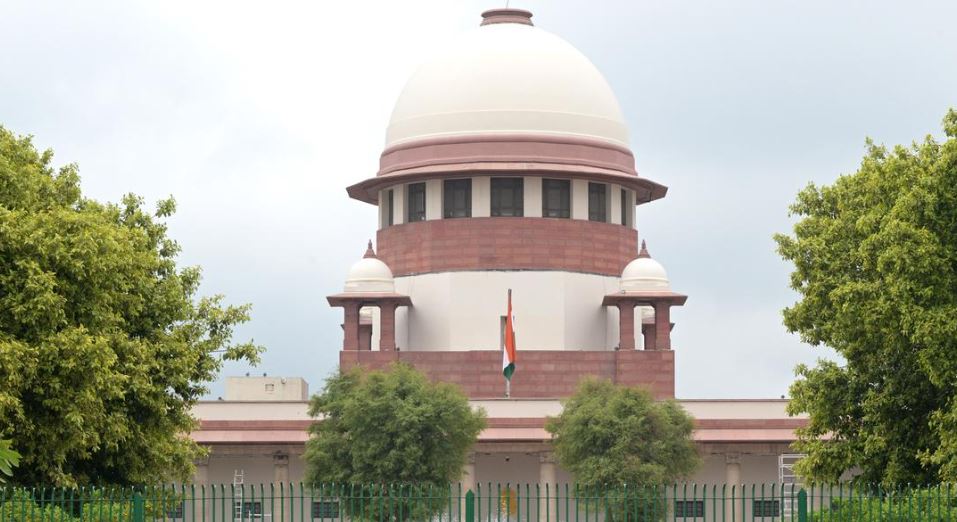Introduction: A Paradigm Shift in Legal Precedents
On August 28, 2024, the Supreme Court of India issued a landmark ruling that reaffirms the principle that bail should be the rule, not incarceration, even in cases under the Prevention of Money Laundering Act (PMLA). This decision marks a significant shift in the legal landscape, particularly concerning how money laundering cases are handled. The judgment came in the context of a high-profile case involving Prem Prakash, a close aide of Jharkhand Chief Minister Hemant Soren, who faced allegations related to illegal mining activities. This ruling highlights the Supreme Court’s commitment to ensuring that the deprivation of liberty remains an exceptional measure rather than the standard approach.
The Supreme Court’s Decision: An Overview
The Supreme Court’s ruling on August 28, 2024, has set a crucial precedent for handling bail in money laundering cases under the Prevention of Money Laundering Act (PMLA). This decision is noteworthy for several reasons:
- Bail as the Norm: The Court reaffirmed that bail should be the standard practice rather than imprisonment. This principle is based on the notion that an individual’s liberty is a fundamental right, and deprivation of this right should only occur under exceptional circumstances.
- Section 45 of PMLA: The judgment addressed Section 45 of the PMLA, which lays out specific conditions for granting bail in money laundering cases. The Court clarified that while this section imposes certain conditions, it does not negate the fundamental principle that bail is the rule.
- Historical Context: The decision also reflects a broader judicial trend towards protecting individual liberties, even in the context of stringent legal frameworks like the PMLA.
Detailed Examination of the Judgment
The Core Ruling: Bail as the Norm
The Supreme Court’s decision underscores a critical shift in how bail is perceived in the context of money laundering cases. The ruling establishes that bail should be considered the default position rather than incarceration. This perspective aligns with the principle that no person should be deprived of their liberty unless absolutely necessary.
The Role of Section 45 of the PMLA
Section 45 of the PMLA outlines specific conditions that must be met for an accused to be granted bail. This section was designed to address concerns about the misuse of bail provisions in serious cases of money laundering. However, the Supreme Court’s ruling clarifies that while Section 45 imposes certain requirements, it does not override the fundamental principle that bail should be the presumption rather than imprisonment.
The Court’s interpretation of Section 45 reflects a balanced approach, ensuring that while the legal framework for money laundering cases remains stringent, it does not compromise on the basic principles of justice and individual liberty.
Precedent and Context: Historical Perspective
The Supreme Court’s ruling is not an isolated decision but part of a broader judicial trend. Previous rulings, such as the August 9, 2024, verdict involving former Delhi Deputy Chief Minister Manish Sisodia, have reinforced the principle that individual liberty should be preserved. In Sisodia’s case, the Court emphasized that deprivation of liberty should be an exception rather than the rule, reinforcing the protection of fundamental rights.
The Case of Prem Prakash: Facts and Implications
Background of the Case
Prem Prakash, a prominent aide to Jharkhand Chief Minister Hemant Soren, was embroiled in a legal battle following allegations of his involvement in illegal mining activities. The Enforcement Directorate (ED) had accused him of being linked to a broader illegal mining operation in Jharkhand, which led to his detention and subsequent legal proceedings.
Supreme Court’s Intervention
The Supreme Court’s intervention in this case was crucial. On August 28, 2024, the Court granted bail to Prem Prakash, overturning the Jharkhand High Court’s March 22, 2024, order that had denied him bail. The Supreme Court’s ruling emphasized that the denial of bail should not be the norm, and the legal process should ensure that individuals are not unjustly deprived of their liberty.
Implications for the Legal System
Impact on PMLA Cases
The Supreme Court’s ruling is set to have significant implications for how money laundering cases are handled in the future. By reinforcing bail as the rule, the decision encourages lower courts to adopt a more balanced approach when dealing with such cases. This shift is expected to lead to increased scrutiny of detention decisions and ensure that individuals are not held in custody for extended periods without trial.
Broader Legal and Social Impact
The ruling also has broader implications beyond money laundering cases. It reinforces the judicial commitment to protecting individual rights and ensuring that legal frameworks do not undermine fundamental freedoms. This decision may influence future legal interpretations and contribute to ongoing discussions about legal reforms and the protection of civil liberties.
Conclusion: A Milestone in Legal Jurisprudence
The Supreme Court’s ruling on August 28, 2024, represents a significant milestone in Indian legal jurisprudence. By reaffirming that bail should be the rule and imprisonment the exception, the Court has highlighted its commitment to safeguarding individual liberties while upholding the rule of law. This landmark judgment will likely shape the future handling of money laundering cases and contribute to broader discussions about legal protections and reforms.
The decision also underscores the importance of maintaining a balance between enforcing stringent laws and protecting fundamental rights. As India continues to grapple with complex legal issues, this ruling serves as a crucial reminder of the need to uphold justice and ensure that legal processes respect and protect individual freedoms.
Soumya Smruti Sahoo is a seasoned journalist with extensive experience in both international and Indian news writing. With a sharp analytical mind and a dedication to uncovering the truth, Soumya has built a reputation for delivering in-depth, well-researched articles that provide readers with a clear understanding of complex global and domestic issues. Her work reflects a deep commitment to journalistic integrity, making her a trusted source for accurate and insightful news coverage.



